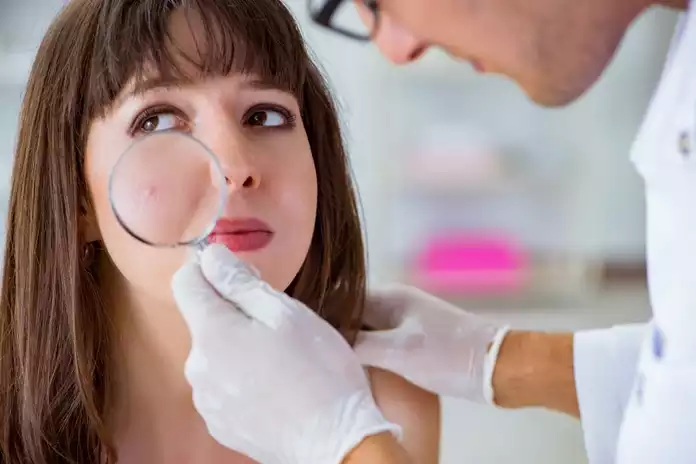Acne Diagnosis

A dermatologist or healthcare provider typically diagnoses acne based on the appearance of the lesions and their distribution on the skin. There are no specific tests for acne, but some diagnostic tests may be recommended to rule out other skin conditions or diseases that can cause similar symptoms.
Here are some diagnostic tests that may be ordered:
- Skin biopsy: A small sample of the affected skin is taken and examined under a microscope to determine any underlying skin conditions contributing to the acne.
- Hormone testing: If there is suspicion of hormonal imbalances causing acne, blood tests may be ordered to check hormone levels.
- Culture and sensitivity testing: If an infection or bacterial overgrowth is associated with acne, a culture and sensitivity test may be ordered to determine the specific bacteria causing the problem and which antibiotics will be effective in treating it.
- Allergy testing: If the acne is suspected to be triggered by an allergic reaction to a medication or cosmetic, allergy testing may be recommended to identify the offending allergen.
In most cases, a diagnosis of acne can be made based on the appearance of the lesions, and diagnostic tests are not typically necessary. Treatment options can then be discussed with the patient based on the severity and type of acne.

